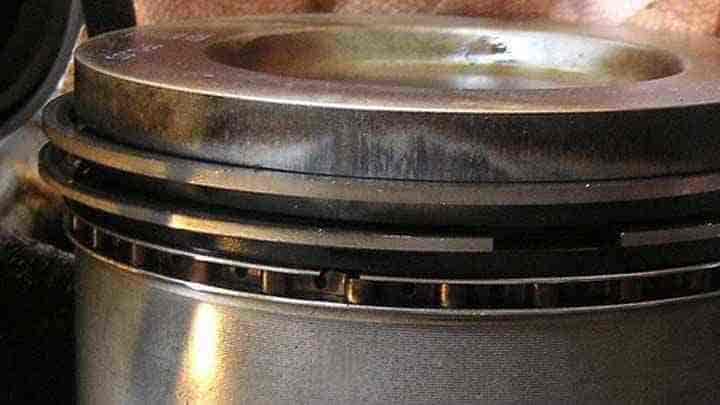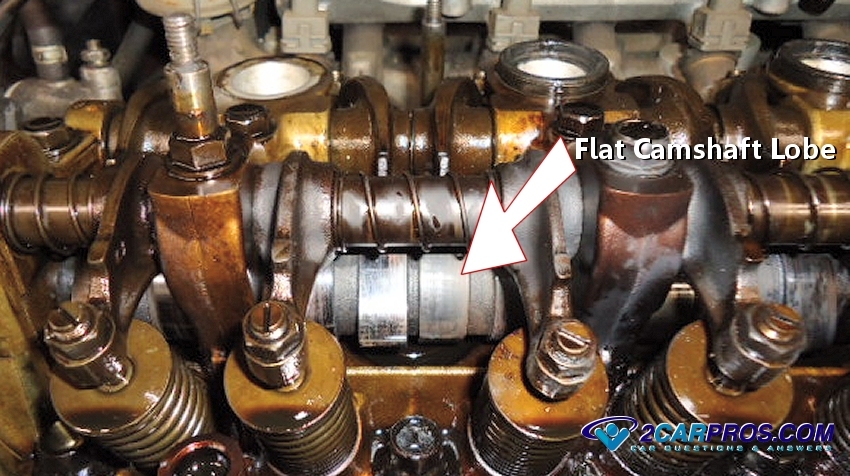
Discussion Starter 1 Jul 2 2014. The process is necessary for the car to move and function.

If theres low compression in one cylinder You will face many problems including misfiring at the time of starting the car or weak engine performance.
What causes low compression in one cylinder. The following are some causes of no compression in one cylinder of your vehicles engine compartment. Dropped valve There are metal valve keepers in the similitude of two pieces of half-moon each that are responsible for holding the valve in place by locking into the valve retainer. Along with that a blown head gasket is a cause of low compression too.
At the top of the engine the head gasket stays connected to the cylinder head. If your head gasket gets blown youll notice theres a gap between the head and the cylinder cap. That gap leads to the gas flowing out causing a low compression in one of the cylinders.
The first one is that if your car is running for a while with misfires the fuel might wash the cylinder walls which causes low compression. The second reason is that the piston rings are sealing poorly or were stuck. Causes of Low Engine Compression.
There are several causes you can eliminate if your cylinders are losing compression. One possibility is a blown head gasket. The head gasket connects to the cylinder head at the top of the engine.
If there is a problem youll notice a gap between the cylinder and the head and gas will escape the cylinder leading to low compression. What causes low compression in a cylinder block. Similar to the problem of the cylinder block overheating is also the main culprit when it comes to gasket issues.
Once the gasket gets worn out it could also cause poor compression in the engine. Low compression in just one cylinder can be due to worn piston rings valves cylinder walls even a worn lobe on a camshaft. A catastrophic failure from the sounds of your story.
Time for a new motor or a new car. Its curtains for your engine. Find the prime suspect for low compression.
See the causes above What can cause low compression in one cylinder Make sure to repair or replace the damaged part. In most cases the timing belt might be the problem. You can fix this by pouring some oil into the cylinder.
If this works you may have also fixed the problem in the piston rings. Compression should be around 170-195psi for a 138k-engine. A little more if youve got carbon-buildup.
Theres a difference between low-compression say 120-150psi in one cylinder and no compression 0-10psi. That most certainly would be a broken valve. Which couldve also punched a hole in the pistons.
Whats wrong with running a motor with low compression in one cylinder. You must find out why the compression is low. In most instances continuing to run it that way will completely destroy that cylinder if not more.
Some possible resons for low compression. You already tried the magic juice method without success. An engine with low compression in one cylinder will present itself by having a misfire and running rough while no compression in all cylinders will cause the engine not to start.
There are many different low compression symptoms which will cause the engine to run abnormally. The compression in the internal combustion IC engine cylinders takes place When air and gas get mixed. The process is necessary for the car to move and function.
If theres low compression in one cylinder You will face many problems including misfiring at the time of starting the car or weak engine performance. Check out a few of the common causes of low compression in a cars engine below. You have holes in one or more of the pistons that move through your engines cylinders.
You have leaky intake valves andor exhaust valves at the top of your engines cylinders. Low Engine Compression In One Cylinder. If readings are very low in one cylinder it is highly probable that.
Internal engine damage exists such as. The piston could have a broken connecting rod or a hole in it. There could be a stuck burnt or leaking valve.
There could be a broken valve spring or a bent push rod. Cylinder 1 low compression. Jump to Latest Follow 1 - 4 of 4 Posts.
Joined Jan 12 2014 8 Posts. Discussion Starter 1 Jul 2 2014. Hi Guys Our MCS R53 has felt slow for a long time a few weeks back i thought it would be fun to do some checks to race it against my Corsa 1.
No compression in all cylinders is also caused by a broken timing belt or a broken camshaft while low compression in all cylinders can be traced to damaged piston rings. If you find that theres absolutely no compression in one cylinder then theres a variety of other causes. A dropped valve seat damaged valve spring a damaged valve and a dropped valve can all lead to no compression in one cylinder.
Answer 1 of 27. Before you remove the head perform a leak-down test. This flows air in thru the spark-plug port with piston locked at TDC compression stroke.
If you have a shop air compressor you can use the gage hoses in the Harbor Freight compression test kit 15 since they have a stand. Causes of Low Compression in an Engine. Low compression in an engine could be caused by a number of faults.
Sometimes low compression is in only one cylinder and in other instances it is in a few or all cylinders. These are the common reasons behind low compression. Reasons for Low Compression in One Cylinder.
Bad Intake or Exhaust Valve. Intake and exhaust valves are present in every combustion chamber in the engines cylinder head. The valves seal against a valve seat which is pressed into the cylinder head.
Low compression in one cylinder usually indicates a bad exhaust valve. Low compression in two adjacent cylinders typically means you have a bad head gasket. Low compression in all cylinders would tell you the rings and cylinders are worn and the engine needs to be overhauled.
Possible Causes of Low Compression Head Gasket Problems. If your gasket isnt aligned properly or is dilapidated it can cause low compression in one cylinder. Your cars timing belt connects the camshaft and crankshaft.
Decrepit Pistons or Piston Rings. Cracks in Cylinder Wall. Once youve lost 60 percent or more of the compression in one cylinder its effectively dead or shaking the engine so badly that you cant ignore it.
Low-compression engines wont develop enough cylinder pressure to sustain the fuel burn and ignite the whole mixture while high-compression or forced-induction engines will essentially shake themselves to pieces or otherwise act as though they have a dead cylinder.